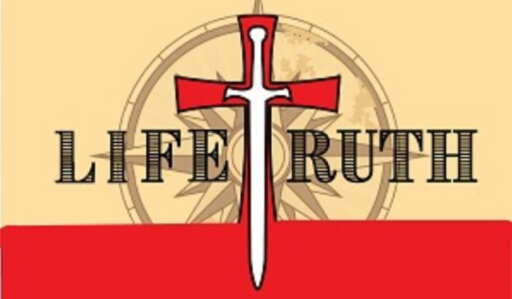After some initial persecution, Paul had been peacefully teaching the gospel to the Gentiles. When word of blasphemy arose, he was quick to compare notes and seek unity with other church leaders. This is commonly known as “The First Council,” and includes Paul’s Relationship to the Other Apostles. It can be found in Galatians 2: 1-21.
today will be looking at the first 10 verses, which includes the Council, and how Paul related to the apostles. Paul clearly saw himself sharing in the authority of the other apostles. In contrast, he was independent and his ministry while remaining unified in the gospel.
This is also the first point historically at which Paul came into sharp conflict with the heresy now troubling the Galatian churches. What was to be done about this distinct point of view? Was it a minor matter to be passed over quickly?
–John MacArthur
let’s take a closer look at the council at Jerusalem. (Galatians 2: 1-5)
it involved some elders and key players from Paul’s side of the issue including Barnabas (v 1). He was Paul’s first ally who vouched for him (Acts 9:27). He later became Paul’s traveling companion on his first missionary journey (Acts 13:2-3).
Titus (v 1), was a student of Paul and a coworker (Titus 1:4-5).
It was by revelation of the Holy Spirit (v 2) that inspired Paul to meet in Jerusalem.
Paul referred to this divine commissioning in order to oppose any ideas that he was being called upon, or forced to go by any human source.
Paul refers to “those who were of reputation” (v 2). Of course, this would be the three main leaders of the Jerusalem church: Peter, James (the Lord’s brother, 1:19), and John. This phrase was typically used of authorities and implied a position of honor.
When he uses the phrase “might run in vain” (v 2). Paul hoped the Jerusalem leaders would support his ministry to the Gentiles. He did not want to see his ministry efforts wasted because of conflict.
The heart of the blasphemy was that Gentiles were being compelled to be circumcised (v 3). They were teaching that there could be no salvation without circumcision (Acts 15:1, 5, 24). As a true believer, Titus was living proof that circumcision and the Mosaic regulations were not prerequisites or necessary components of salvation.
The term, “false brethren” (v 4) referred to the Judaizers, who pretended to be true Christians, but were not.
These false brothers were spies (v 4). The Greek word pictures spies or traitors entering by stealth into an enemy’s camp.
The Judaizers were Satan’s undercover agents, sent into the Gentile church to sabotage the true gospel.
liberty (v 4). Christians are free from the law as a means of salvation, and from the curse of sin that it represents. Christ bore the curse of sin for all believers. It’s freedom from sin, not a license to sin, but to live at liberty in Christ.
bondage (v 4). Refers to the slavery that we are in while we obey our sins rather than Christ. An absolute manner of slavery to an impossible system of laws.
Paul and the pillar apostles (Galatians 2: 6-10).
The unique privileges of the Twelve did not make their apostleship anymore, or less important than what Paul claimed his apostleship was. Christ commissioned them all.
Paul preached the gospel primarily to the Gentiles, but also to Jews in Gentile lands.
The phrase “Peter had been to the circumcised” (v 7) points out that Peter’s ministry was primarily to the Jews.
“He who worked effectively in Peter” compares to “effectively in me” (v 8) clearly refers to The Holy Spirit, empowered both Peter and Paul. There was one gospel behind both ministries.
pillars (v 9). Again, a title that emphasizes the Hon. roles of Peter, James and John.
the right hand of fellowship (v 9). A phrase that denoted friendship and fellowship back then, and even today among believers.
remember the poor (v 10). The definition of what true worship is about. Taking care of those who can’t otherwise care for themselves. A goal that those ministries to Jews and Gentiles alike have in common.
A final word from Philippians 3:1-14 NASB
1 Finally, my brethren, rejoice in the Lord. To write the same things again is no trouble to me, and it is a safeguard for you.
2 Beware of the dogs, beware of the evil workers, beware of the false circumcision;
3 for we are the true circumcision, who worship in the Spirit of God and glory in Christ Jesus and put no confidence in the flesh,
4 although I myself might have confidence even in the flesh. If anyone else has a mind to put confidence in the flesh, I far more:
5 circumcised the eighth day, of the nation of Israel, of the tribe of Benjamin, a Hebrew of Hebrews; as to the Law, a Pharisee;
6 as to zeal, a persecutor of the church; as to the righteousness which is in the Law, found blameless.
7 But whatever things were gain to me, those things I have counted as loss for the sake of Christ.
8 More than that, I count all things to be loss in view of the surpassing value of knowing Christ Jesus my Lord, for whom I have suffered the loss of all things, and count them but rubbish so that I may gain Christ,
9 and may be found in Him, not having a righteousness of my own derived from the Law, but that which is through faith in Christ, the righteousness which comes from God on the basis of faith,
10 that I may know Him and the power of His resurrection and the fellowship of His sufferings, being conformed to His death;
11 in order that I may attain to the resurrection from the dead.
12 Not that I have already obtained it or have already become perfect, but I press on so that I may lay hold of that for which also I was laid hold of by Christ Jesus.
13 Brethren, I do not regard myself as having laid hold of it yet; but one thing I do: forgetting what lies behind and reaching forward to what lies ahead,
14 I press on toward the goal for the prize of the upward call of God in Christ Jesus.
Podcast: Play in new window | Download (Duration: 43:37 — 39.9MB)
Subscribe: Apple Podcasts | Amazon Music | Podchaser | RSS | More

